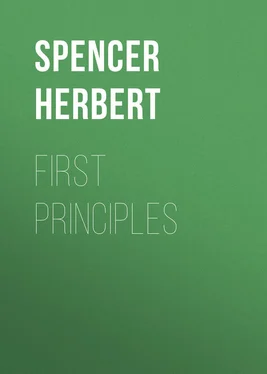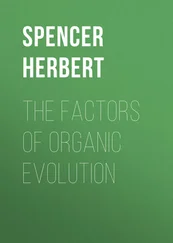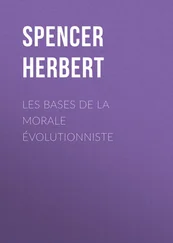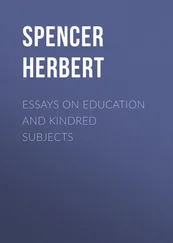Herbert Spencer - First Principles
Здесь есть возможность читать онлайн «Herbert Spencer - First Principles» — ознакомительный отрывок электронной книги совершенно бесплатно, а после прочтения отрывка купить полную версию. В некоторых случаях можно слушать аудио, скачать через торрент в формате fb2 и присутствует краткое содержание. Жанр: Философия, foreign_antique, foreign_prose, на английском языке. Описание произведения, (предисловие) а так же отзывы посетителей доступны на портале библиотеки ЛибКат.
- Название:First Principles
- Автор:
- Жанр:
- Год:неизвестен
- ISBN:нет данных
- Рейтинг книги:5 / 5. Голосов: 1
-
Избранное:Добавить в избранное
- Отзывы:
-
Ваша оценка:
- 100
- 1
- 2
- 3
- 4
- 5
First Principles: краткое содержание, описание и аннотация
Предлагаем к чтению аннотацию, описание, краткое содержание или предисловие (зависит от того, что написал сам автор книги «First Principles»). Если вы не нашли необходимую информацию о книге — напишите в комментариях, мы постараемся отыскать её.
First Principles — читать онлайн ознакомительный отрывок
Ниже представлен текст книги, разбитый по страницам. Система сохранения места последней прочитанной страницы, позволяет с удобством читать онлайн бесплатно книгу «First Principles», без необходимости каждый раз заново искать на чём Вы остановились. Поставьте закладку, и сможете в любой момент перейти на страницу, на которой закончили чтение.
Интервал:
Закладка:
Preserving, as far as may be, this impartial attitude, let us then contemplate the two sides of this great controversy. Keeping guard against the bias of education and shutting out the whisperings of sectarian feeling, let us consider what are the à priori probabilities in favour of each party.
§ 4. When duly realized, the general principle above illustrated must lead us to anticipate that the diverse forms of religious belief which have existed and which still exist, have all a basis in some ultimate fact. Judging by analogy the implication is, not that any one of them is altogether right; but that in each there is something right more or less disguised by other things wrong. It may be that the soul of truth contained in erroneous creeds is very unlike most, if not all, of its several embodiments; and indeed, if, as we have good reason to expect, it is much more abstract than any of them, its unlikeness necessarily follows. But however different from its concrete expressions, some essential verity must be looked for. To suppose that these multiform conceptions should be one and all absolutely groundless, discredits too profoundly that average human intelligence from which all our individual intelligences are inherited.
This most general reason we shall find enforced by other more special ones. To the presumption that a number of diverse beliefs of the same class have some common foundation in fact, must in this case be added a further presumption derived from the omnipresence of the beliefs. Religious ideas of one kind or other are almost if not quite universal. Even should it be true, as alleged, that there exist tribes of men who have nothing approaching to a theory of creation – even should it be true that only when a certain phase of intelligence is reached do the most rudimentary of such theories make their appearance; the implication is practically the same. Grant that among all races who have passed a certain stage of intellectual development there are found vague notions concerning the origin and hidden nature of surrounding things; and there arises the inference that such notions are necessary products of progressing intelligence. Their endless variety serves but to strengthen this conclusion: showing as it does a more or less independent genesis – showing how, in different places and times, like conditions have led to similar trains of thought, ending in analogous results. That these countless different, and yet allied, phenomena presented by all religions are accidental or factitious, is an untenable supposition. A candid examination of the evidence quite negatives the doctrine maintained by some, that creeds are priestly inventions. Even as a mere question of probabilities it cannot rationally be concluded that in every society, past and present, savage and civilized, certain members of the community have combined to delude the rest, in ways so analogous. To any who may allege that some primitive fiction was devised by some primitive priesthood, before yet mankind had diverged from a common centre, a reply is furnished by philology; for philology proves the dispersion of mankind to have commenced before there existed a language sufficiently organized to express religious ideas. Moreover, were it otherwise tenable, the hypothesis of artificial origin fails to account for the facts. It does not explain why, under all changes of form, certain elements of religious belief remain constant. It does not show us how it happens that while adverse criticism has from age to age gone on destroying particular theological dogmas, it has not destroyed the fundamental conception underlying these dogmas. It leaves us without any solution of the striking circumstance that when, from the absurdities and corruptions accumulated around them, national creeds have fallen into general discredit, ending in indifferentism or positive denial, there has always by and by arisen a re-assertion of them: if not the same in form, still the same in essence. Thus the universality of religious ideas, their independent evolution among different primitive races, and their great vitality, unite in showing that their source must be deep-seated instead of superficial. In other words, we are obliged to admit that if not supernaturally derived as the majority contend, they must be derived out of human experiences, slowly accumulated and organized.
Should it be asserted that religious ideas are products of the religious sentiment, which, to satisfy itself, prompts imaginations that it afterwards projects into the external world, and by and by mistakes for realities; the problem is not solved, but only removed further back. Whether the wish is father to the thought, or whether sentiment and idea have a common genesis, there equally arises the question – Whence comes the sentiment? That it is a constituent in man’s nature is implied by the hypothesis; and cannot indeed be denied by those who prefer other hypotheses. And if the religious sentiment, displayed habitually by the majority of mankind, and occasionally aroused even in those seemingly devoid of it, must be classed among human emotions, we cannot rationally ignore it. We are bound to ask its origin and its function. Here is an attribute which, to say the least, has had an enormous influence – which has played a conspicuous part throughout the entire past as far back as history records, and is at present the life of numerous institutions, the stimulus to perpetual controversies, and the prompter of countless daily actions. Any Theory of Things which takes no account of this attribute, must, then, be extremely defective. If with no other view, still as a question in philosophy, we are called on to say what this attribute means; and we cannot decline the task without confessing our philosophy to be incompetent.
Two suppositions only are open to us: the one that the feeling which responds to religious ideas resulted, along with all other human faculties, from an act of special creation; the other that it, in common with the rest, arose by a process of evolution. If we adopt the first of these alternatives, universally accepted by our ancestors and by the immense majority of our contemporaries, the matter is at once settled: man is directly endowed with the religious feeling by a creator; and to that creator it designedly responds. If we adopt the second alternative, then we are met by the questions – What are the circumstances to which the genesis of the religious feeling is due? and – What is its office? We are bound to entertain these questions; and we are bound to find answers to them. Considering all faculties, as we must on this supposition, to result from accumulated modifications caused by the intercourse of the organism with its environment, we are obliged to admit that there exist in the environment certain phenomena or conditions which have determined the growth of the feeling in question; and so are obliged to admit that it is as normal as any other faculty. Add to which that as, on the hypothesis of a development of lower forms into higher, the end towards which the progressive changes directly or indirectly tend, must be adaptation to the requirements of existence; we are also forced to infer that this feeling is in some way conducive to human welfare. Thus both alternatives contain the same ultimate implication. We must conclude that the religious sentiment is either directly created, or is created by the slow action of natural causes; and whichever of these conclusions we adopt, requires us to treat the religious sentiment with respect.
One other consideration should not be overlooked – a consideration which students of Science more especially need to have pointed out. Occupied as such are with established truths, and accustomed to regard things not already known as things to be hereafter discovered, they are liable to forget that information, however extensive it may become, can never satisfy inquiry. Positive knowledge does not, and never can, fill the whole region of possible thought. At the uttermost reach of discovery there arises, and must ever arise, the question – What lies beyond? As it is impossible to think of a limit to space so as to exclude the idea of space lying outside that limit; so we cannot conceive of any explanation profound enough to exclude the question – What is the explanation of that explanation? Regarding Science as a gradually increasing sphere, we may say that every addition to its surface does but bring it into wider contact with surrounding nescience. There must ever remain therefore two antithetical modes of mental action. Throughout all future time, as now, the human mind may occupy itself, not only with ascertained phenomena and their relations, but also with that unascertained something which phenomena and their relations imply. Hence if knowledge cannot monopolize consciousness – if it must always continue possible for the mind to dwell upon that which transcends knowledge; then there can never cease to be a place for something of the nature of Religion; since Religion under all its forms is distinguished from everything else in this, that its subject matter is that which passes the sphere of experience.
Читать дальшеИнтервал:
Закладка:
Похожие книги на «First Principles»
Представляем Вашему вниманию похожие книги на «First Principles» списком для выбора. Мы отобрали схожую по названию и смыслу литературу в надежде предоставить читателям больше вариантов отыскать новые, интересные, ещё непрочитанные произведения.
Обсуждение, отзывы о книге «First Principles» и просто собственные мнения читателей. Оставьте ваши комментарии, напишите, что Вы думаете о произведении, его смысле или главных героях. Укажите что конкретно понравилось, а что нет, и почему Вы так считаете.












